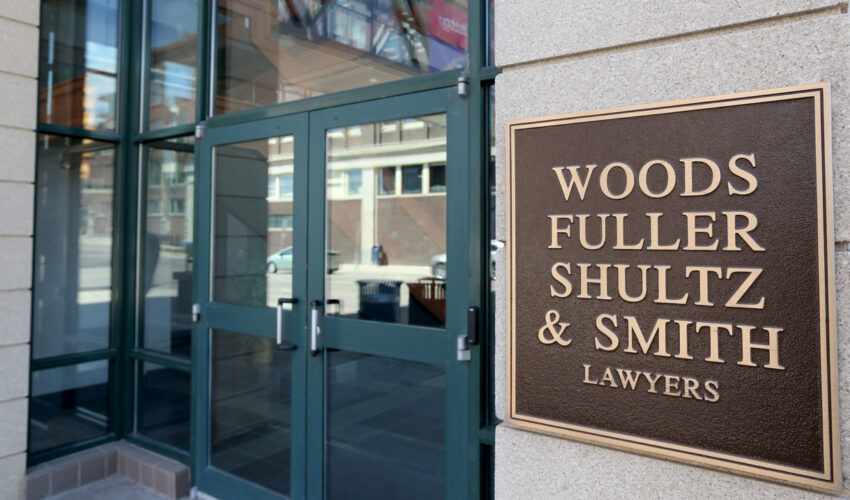Employment laws are changing. Here’s what you need to know
Feb. 27, 2019
This paid piece is sponsored by Woods, Fuller, Shultz & Smith PC.
Curious how new labor and employment laws and regulations will affect your organization? There are a host of new or amended laws that will impact most employers in 2019. Below is a brief summary of the laws and regulations taking effect this year, and some additional changes that are anticipated to impact employers.
Federal
A significant change to employment law enacted in 2018, was Congress’s omnibus budget bill, the Consolidated Appropriations Act. The act amended the Fair Labor Standards Act, or FLSA, by addressing rules affecting tipped employees and tip ownership. The act prohibits an employer from keeping tips that were received by its employees, including allowing managers or supervisors to keep a portion of employee tips, regardless of whether the employer takes a tip credit.
The Tax Cuts and Jobs Act impacts certain deductions and reporting provisions. The law eliminated the deduction for any expenses directly related to activities generally considered entertainment.
The Tax Cuts and Jobs Act also included a provision that eliminates a business expense deduction related to nondisclosure agreements in connection with the settlement of sexual harassment claims. The amended section of the tax code, Section 162, provides that no business expense deduction will be allowed for any settlement or payment related to sexual harassment or sexual abuse, including attorney fees, if such settlement or payment is subject to a nondisclosure agreement.
An increase in the federal minimum wage for white-collar administrative employees may be in store for 2019. The raise from $23,660 to $47,476 was proposed and then promptly challenged in court in 2016. The proposal is currently under review again, with a possible decision anticipated in March.
There may be new regulations regarding overtime and the definition of joint employment. The redefinition of joint employment is expected to reduce the likelihood that an employer will be found to be a joint employer under the FLSA and provide employers with increased discretion in how overtime rules are imposed.
Immigration
The H-2B cap for seasonal non-agricultural workers will again leave more than half of the petitioning employers without their needed seasonal immigrant labor force. The cap allows for 33,000 visas nationally between April 1 and Sept. 30 each year, with the visa demand greatly exceeding supply for the past several years. On Jan. 15, Sen. John Thune, R-S.D., reintroduced the Prioritizing Help to Businesses Act legislation to prioritize H-2B visa allocation to states with the lowest unemployment rates, benefiting states with the highest need for a supplemental workforce. It also would provide cap relief for other states beyond the initial 66,000 visas that are allocated nationally. The bill would benefit South Dakota seasonal employers, with the state meeting certain requirements such as a low unemployment rate coupled with a low number of annual H-2B workers. Thune explained in his news release: “With a high volume of seasonal workers who come to South Dakota during the busy tourist season, the H-2B program is especially important to our state. Businesses rely on this program to serve the millions of people traveling to experience all the wonderful things our state has to offer. By ensuring states with low unemployment have access to additional seasonal workers, we can meet the unique needs of not just South Dakota, but all states across the country.” In light of the unprecedented demand for H-2B labor certifications, the Department of Labor recently announced that it is considering changing the process by which applications are ordered for processing, including randomization and other methods. Comments and suggestions should be directed to [email protected].
The H-1B program for year-round specialty occupations is undergoing new rulemaking, which impacts how the H-1B lottery is conducted for cap-subject employers. Under the current process, employers planning on filing H-1B cap-subject petitions send the complete H1-B petition packet directly to U.S. Citizenship & Immigration Services for submission to the lottery. Under the new rule, expected to take effect for the 2021 cap season, employers planning to file H1-B petitions are required to pre-register with USCIS electronically during a designated registration period. USCIS will run the registrations through a lottery and will notify the selected applicants that they can later submit their full H-1B petitions for review. The new rule also changes the order that the lottery is conducted. Beginning with the 2020 fiscal year cap season, which petitions are currently being prepared for, the lottery will be conducted in a way that slightly increases the likelihood that a candidate with a U.S. master’s degree or higher would be selected. It slightly decreases the probability of selection for candidates that do not have a U.S. master’s degree or higher.
In November 2018, the Department of Homeland Security, in conjunction with the Department of Labor, announced a proposed rule that would require electronic advertisements for open positions be posted on the internet for at least 14 days, replacing the print newspaper advertisements currently required by the regulations. DHS and DOL officials believe this would make it easier for U.S. workers to find and apply for these open positions.
States
Many states have increased the minimum wage for 2019 or are expected to do so. This includes South Dakota, which saw a Jan. 1 increase in the minimum wage from $8.85 to $9.10 an hour.
If you have questions about recent changes to employment laws or would like to review your existing policies and procedures for compliance, Woods Fuller employment law attorneys can help. Visit woodsfuller.com for information.








